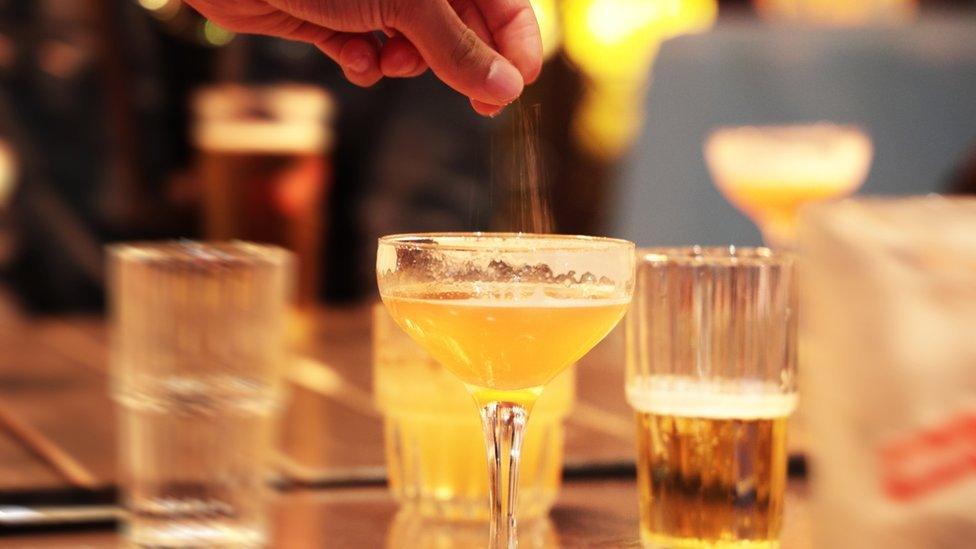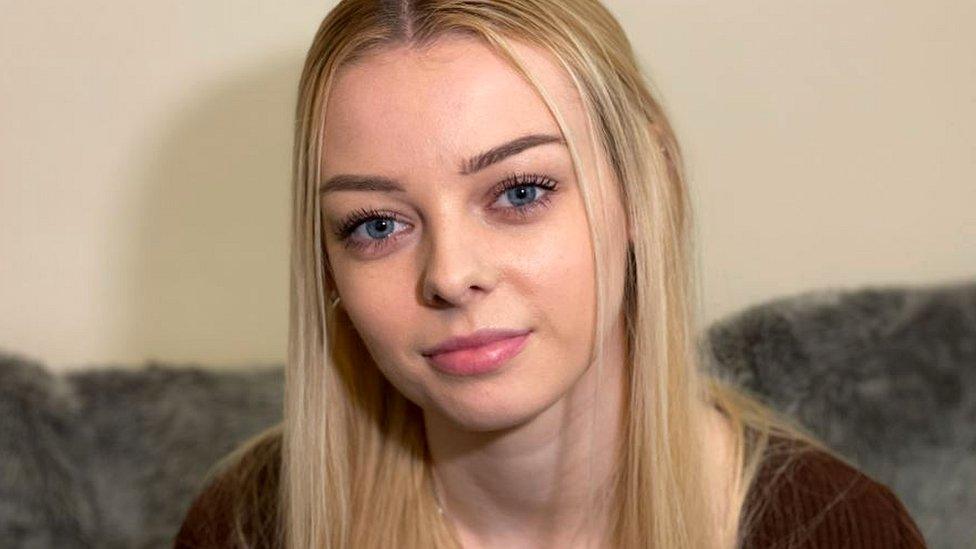Spiking crackdown to see more funding for test kits
- Published

More training for door staff and funding for testing kits are among a package of measures announced to crack down on spiking.
The Home Office has said the law will also be "modernised" to make it clear spiking - putting alcohol or drugs into another person's drink or body without their consent - is a crime.
The plans have broadly been welcomed by campaigners.
But they stop short of calls from some to make spiking a specific offence.
The measures announced by the government include:
Training hundreds more door staff to stop potential perpetrators and signs someone may have been spiked
Investing in research into testing kits to detect if someone's drink has been spiked
Intensive operations by the National Police Chiefs' Council (NPCC) across England and Wales, targeting key weeks when spiking tends to be prevalent
An online tool to be rolled out to all police forces to make it easier for people to report spiking anonymously
Home Secretary James Cleverly said: "Spiking is a perverse crime which can have a lasting impact on victims.
"Our comprehensive new measures are designed to help police and staff in bars, restaurants, pubs and other premises to protect victims and bring more offenders to justice."
On Sunday the government announced it would amend the Criminal Justice Bill to make clear "without any doubt" that spiking is illegal.
It said this would be backed by separate guidance, set in law, to provide an "unequivocal" definition of spiking.
The change will update parts of the Offences Against the Person Act 1861, external, which already makes it an offence to maliciously administer poison so as to endanger the life of someone or inflict grievous bodily harm.
Earlier this year the government said there were already several offences which covered spiking so it was not necessary to create a new law.
MPs on the Home Affairs Committee are among those who have called for the creation of a specific offence of spiking, arguing it could help increase reporting of incidents and improve police data.
Asked why the government was not planning to do this, Mr Cleverly told reporters: "This is a law that police officers understand, they're familiar with, but it is very, very old.
"So what we're doing is we're updating the law to make it more relevant, to make it explicit to spiking, so the police officers can understand it and deploy it, so that people hear that it is completely unacceptable."
Official statistics on spiking are not routinely published but last year the NPCC said almost 5,000 cases of needle and drink spiking incidents were reported to police in England and Wales in the 12 months to September 2022.
Dawn Dines, who founded the campaign group Stamp Out Spiking, welcomed the announcement as "monumental".
"Spiking being clearly recognised in law and the language being modernised will give a clear message to the perpetrators that giving someone any drug - including alcohol without that person's knowledge or consent - can result in a criminal conviction and not be tolerated," she said.
Former Love Island contestant Sharon Gaffka, who has campaigned on the issue after being a victim of drink spiking herself, said: "While urging legislative updates has been my primary request for some time, the introduction and investment in preventive measures like venue staff training and drink testing kits is crucial."
Labour said the Conservatives were "finally moving in the right direction but there is more work to do".
The party pointed to figures suggesting spiking reports have increased five-fold in the past five years but the proportion leading to a charge is falling. , external
Shadow minister for domestic violence and safeguarding Alex Davies-Jones said: "Labour have called for spiking to be made a separate offence to increase people coming forward and the chance for convictions, and for every police force to have a rape and serious sexual offence unit."

Sign up for our morning newsletter and get BBC News in your inbox.


Have you been affected by the issues raised in this story? Share your experiences by emailing haveyoursay@bbc.co.uk, external.
Please include a contact number if you are willing to speak to a BBC journalist. You can also get in touch in the following ways:
WhatsApp: +44 7756 165803
Tweet: @BBC_HaveYourSay, external
Please read our terms & conditions and privacy policy
If you are reading this page and can't see the form you will need to visit the mobile version of the BBC website to submit your question or comment or you can email us at HaveYourSay@bbc.co.uk, external. Please include your name, age and location with any submission.
Related topics
- Published11 January 2023

- Published28 December 2022

- Published12 November 2021
